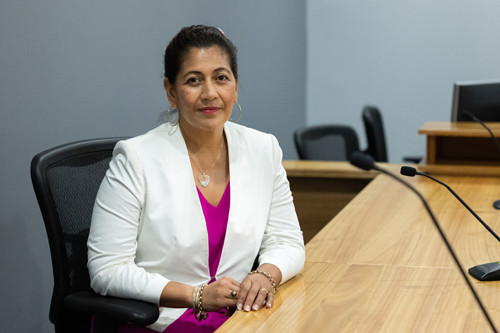The Health Research Council of New Zealand (HRC) is funding two research projects at the University of Waikato, one aimed at enhancing antibody responses to new vaccine technology, and another which will combine movement analogies with Māori storytelling.

University of Waikato researchers Dr William Kelton and Dr Merel Hoskens have each been awarded HRC Explorer Grants in recognition of their innovative work.
As the principal governmental investor in health research, HRC’s Explorer Grants are designed to foster transformative and exploratory research ideas that have a good chance of making revolutionary healthcare changes in New Zealand.
Self-signalling mRNA vaccines for sustained antibody immunity
mRNA (messenger RNA) vaccines, which deliver molecules that directs cells to make pathogen proteins, have forever changed the way we fight diseases like the SARS-CoV-2 coronavirus.
SARS-CoV-2 is the virus responsible for Covid-19 and current vaccines to fight the disease become less effective over time due to declining antibody levels.
Dr Kelton’s goal is to make vaccines that boost antibody responses by better activating the immune cells responsible for driving antibody production.
“We’re focusing on a specific type of immune cell that improves antibody responses,” says Dr Kelton. “By doing this, we hope to make SARS-CoV-2 vaccines more effective, so people don’t need as many booster shots but are still well protected from the virus.”
Self-signalling vaccines are an entirely new approach for improving vaccine efficiency and are only made possible by recent advancements in mRNA technology which enables antigens to be produced from within immune cells rather than being supplied externally.
The research aims to understand the mechanisms driving immune responses to mRNA vaccines, particularly why protective antibody levels decline over time.
“Such insights are crucial for developing next-generation vaccines, including against diseases like influenza, where rapid deployment is vital due to seasonal changes in antigen composition.
“New Zealand is actively investing in mRNA vaccine technology to prepare for future pandemics."
The research includes support for summer scholars in partnership with local iwi and the findings are expected to be published nationally and internationally.

Better rehabilitation: Integration of movement analogies in Māori storytelling.
Movement disorders are one of the leading disorders in the world, impacting daily life and major costs on healthcare systems.
People with movement disorders need to relearn movement skills that are crucial for independent living, but often they are too conscious of what they are doing, which can make movements worse.
Dr Hoskens and her colleagues, Professor Rich Masters and Dr Gloria Clarke (Te Arawa, Rangitaane ki Wairarapa) are investigating how people in rehabilitation can relearn movement skills unconsciously so that they are not too conscious of what they are doing.
This study could significantly advance rehabilitation knowledge, potentially leading to faster recovery and improved quality of life, particularly for Māori communities, who face barriers to accessing rehabilitation services due to social, cultural, economic, and geographical factors.
“Intensive rehabilitation focusing on movement functions is crucial for improving the quality of life for people with movement disorders, but the effectiveness of traditional rehabilitation approaches to motor relearning is hindered due to disruptions in cognitive processes,” says Dr Hoskens.
“We believe that using analogies, which connect familiar stories or ideas to movements could be helpful, especially for people of Māori descent. This is because analogies are an important component of Māori storytelling, which teaches important lessons about life.”
This study combines movement analogies with Māori cultural elements such as pūrākau (stories), waiata (songs), and whakataukī (proverbs) to see if this approach to relearning disordered movements is more effective than traditional methods.
It hypothesises that people with movement disorders will learn more efficiently using implicit non-conscious motor control approaches grounded in cultural contexts.
By integrating cultural elements into rehabilitation, the research aims to facilitate faster recovery, ultimately enhancing quality of life.



